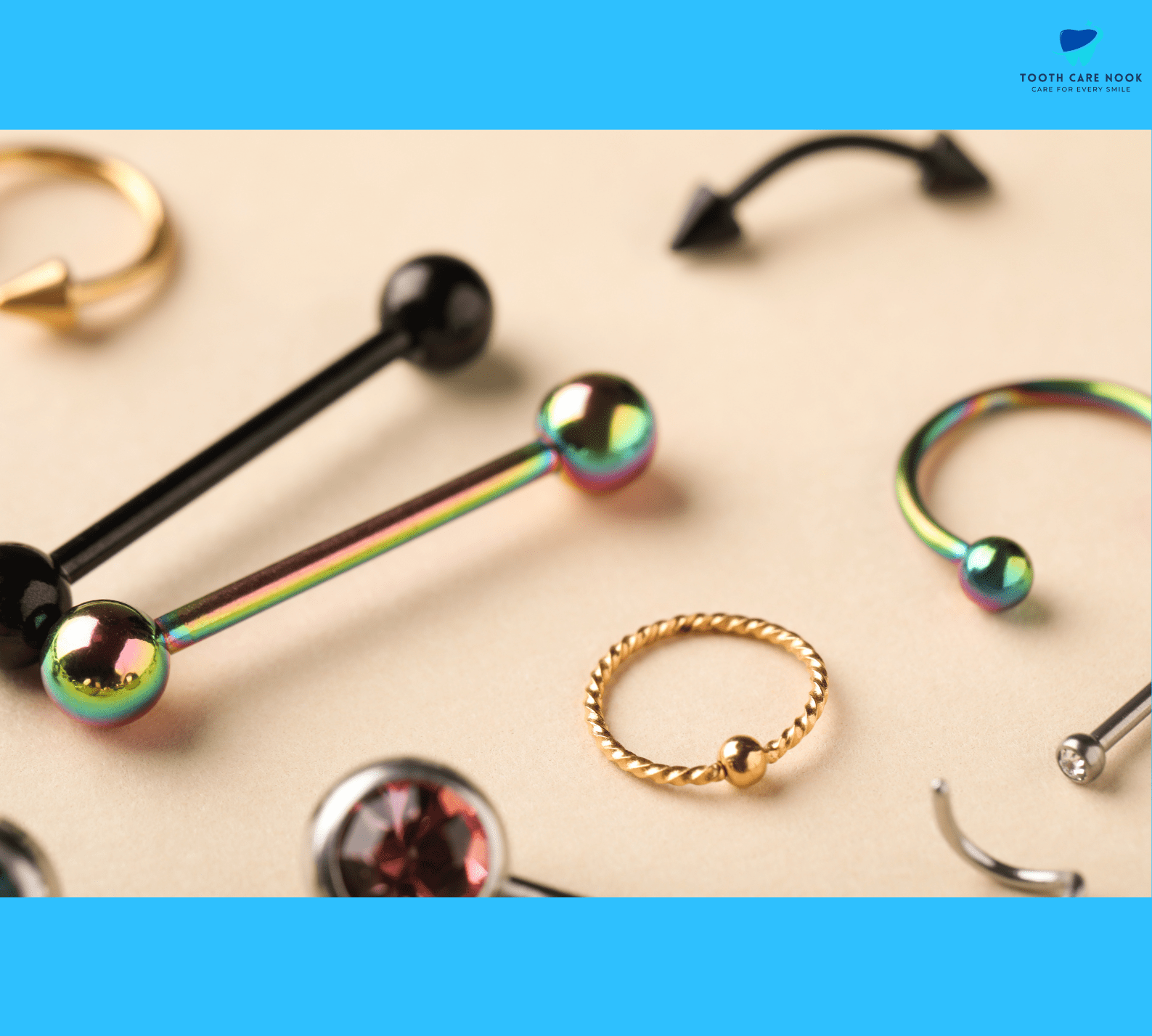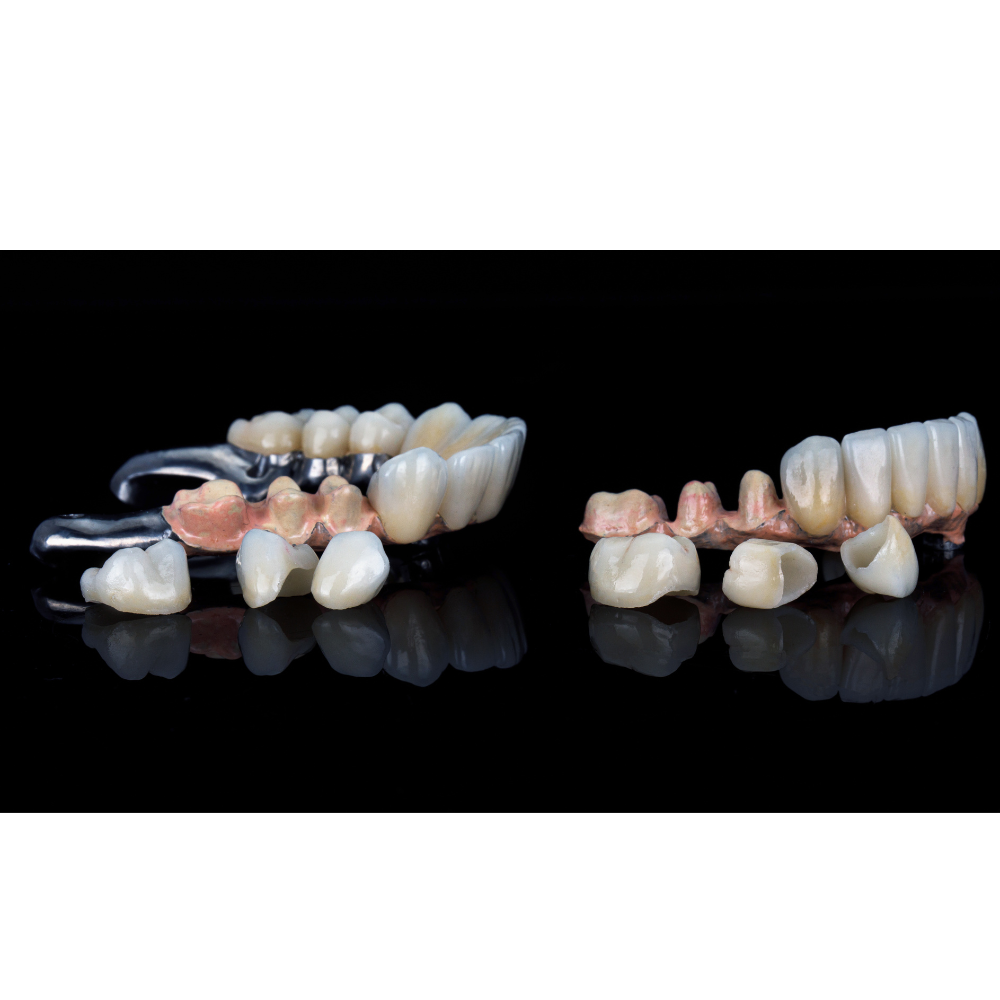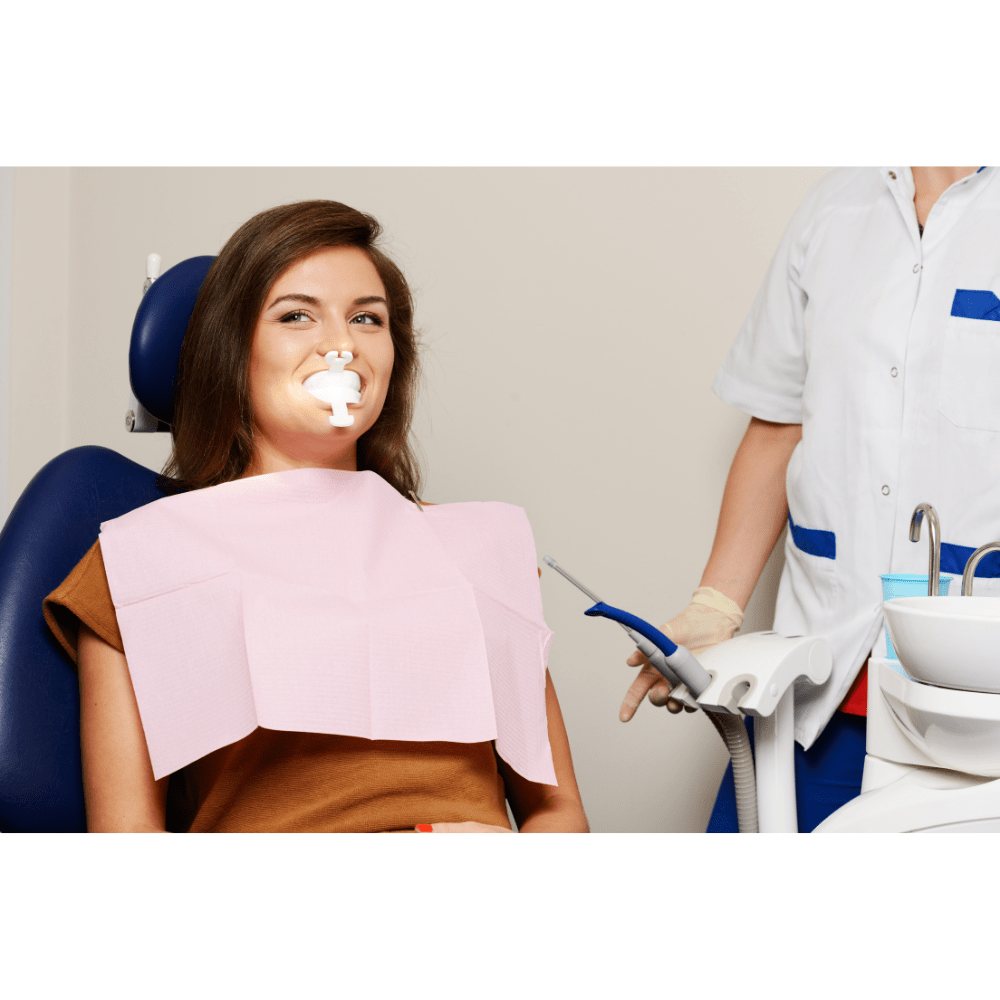Can You Have A Tongue Piercing With Braces? | Insights
Tongue piercing also known as tongue rings is a metal jewelry that is a daring form of self-expression that involves the insertion of jewelry through the tongue. It is a trend embraced by many for its bold aesthetic. But wait, you’re on braces. What, if this rebellious style collides with the practicalities of braces? Let’s get to know about this possibility.
Can You Have A Tongue Piercing With Braces
It is not advisable to have a tongue piercing with braces. The presence of braces already creates an environment with an increased risk of oral injuries. Adding a tongue piercing could exacerbate the potential for complications.
The piercing can affect the braces during daily activities like talking and sleeping, making them less effective by disrupting tooth movement and causing gaps. Also, it can interfere with other orthodontic appliances like space maintainers, aligners, and palatal expanders. As a byproduct, swelling and heightened saliva production post-piercing will further complicate orthodontic care.
What Are the Risks of Getting Your Tongue Pierced with Braces?

Tongue piercing comes with certain risks for braces warriors.
Interference with Orthodontic Appliances
The metal-to-metal interaction is not safe when you’ve piercing and braces in your mouth. The piercing’s metal ball could get caught on wires or brackets leading to discomfort, irritation, or even dislodgment of braces in extreme cases.
Prolonged Healing Time
The continuous interaction between the tongue piercing and braces causes increased friction that leads to irritation and inflammation. As a result, it impedes the natural healing process.
Speech And Swallowing Issues
The presence of braces causes temporary changes in tongue positioning and function that impact speech pronunciation. Adding their part to the problem, the metal components of the tongue piercing can cause discomfort and hinder fluid swallowing.
The added bulk in the mouth from both the braces and piercing can disrupt the coordination required for smooth speech and efficient swallowing. This combination causes an individual to experience difficulties in articulation and discomfort during basic oral functions.
Difficulty in Oral Hygiene
Lastly, the braces and tongue-piercing metal make it difficult to perform hygiene practices. The piercing’s metal components may obstruct access. It as a result promotes plaque buildup around brackets and wires.
How Tongue Piercings Affect Teeth and Gums
Tongue piercing not only hinders in practicing oral hygiene practices but ultimately leads to gum diseases and cavities. The constant contact between piercing metal and braces causes enamel erosion that increases the risk of cavities. While gums may experience irritation and recession due to the piercing’s presence and continuous irritation leads to gum diseases. Knowing all the risks associated with tongue piercing and braces, if you still want to go for it, here are a few factors to consider when going for tongue piercings and braces together safely.
Factors to Consider When Getting Tongue Piercings and Braces Together
Timing of Piercing
The first thing to consider is the timing of the piercing. Avoid getting your orthodontic treatment and piercing together. It is advised to wait until your braces are settled. This may reduce the risk of additional complications.
Choose Appropriate Jewelry

Consider choosing jewelry for piercing that is less likely to irritate. You can opt for titanium or biocompatible plastics for putting tongue piercings and braces together. Titanium is known for its biocompatibility, it reduces the risk of inflammation and supports a smoother healing process. Biocompatible plastics, like PTFE or BioFlex, offer flexibility and minimize potential damage to braces. These materials will not cause any allergic reaction.
Piercing Placement
Work closely with your piercer to place a piercing in a suitable and safe place. Avoid placing it near braces like tongue webbing, so that interaction of both metals could be avoided. A professional piercer will surely consider your anatomy and the presence of braces.
Regular Check-ups
Schedule regular checkups with your piercier and orthodontist. This will help you to keep a check on any potential rising issues. It will ensure that both tongue piercings and braces are progressing as expected.
Other Oral Piercings with Braces and Their Effects
Smiley Piercing with Braces
A Smiley Piercing (lip frenulum piercing) is an oral piercing where jewelry is inserted into a frenulum (thin flap of skin) connecting the upper lip to the gum. It is called smiley piercing because it appears when your teeth smile. With braces, it is usually not recommended by dentists.
Potential Issues You Might Face
Smiley piercing with braces can cause
- Difficulty in maintaining proper oral hygiene around the piercing and braces.
- Increased risk of irritation due to the interaction with braces.
Lip Piercing with Braces
Lip piercing involves inserting jewelry through a lip tissue. It is considered a sign of self-expression. With braces, it imposes an unnecessary risk.
Potential Issues You Might Face
Lip piercing with braces can cause
- Risk of gum and lip tissue irritation or damage
- The healing process for both the lip piercing and any potential damage to oral tissues may be prolonged when braces are present.
Cheek Piercing with Braces

A cheek/dimple piercing is a facial piercing in which jewelry is inserted through the soft tissue of the inner cheek. It is considered as a form of modification for those who demand unique aesthetics. With braces, you can get that but you’ll have to take extra care.
Potential Issues You Might Face
- Potential for irritation to the inner cheek tissue due to braces and piercing interaction.
Lingual Frenulum Piercing with Braces
Lingual frenulum piercing/tongue web piercing is done through the thin membrane beneath the tongue. People with that body modification claim to project a discreet and unique look. American Dental Association (ADA) cautions against oral piercing, especially in areas that are relatively close to braces.
Potential Issues You Might Face
- Difficulty in keeping the area clean leads to a higher risk of complications.
FAQs You Might Also Want to Know About
Who shouldn’t get their tongue pierced?
Individuals with certain oral health conditions like gum disease or a high risk of dental complications should avoid tongue piercings. Also, people with certain medical conditions or those prone to oral infections should refrain from getting their tongue pierced.
What can’t you do with a tongue piercing?
With a tongue piercing, activities like playing with the piercing or biting on it can lead to complications such as chipped teeth, gum damage, or infections. You should also avoid consuming hot, spicy, or acidic foods during the initial healing period to prevent irritation and discomfort.
Does tongue piercing make breath smell?
Yes, tongue piercings can contribute to bad breath if not properly maintained. Bacteria can accumulate around the piercing site and on the jewelry, leading to odor. Regular oral hygiene practices, including brushing your teeth, cleaning your tongue, and rinsing with mouthwash, can help mitigate bad breath associated with tongue piercings.



